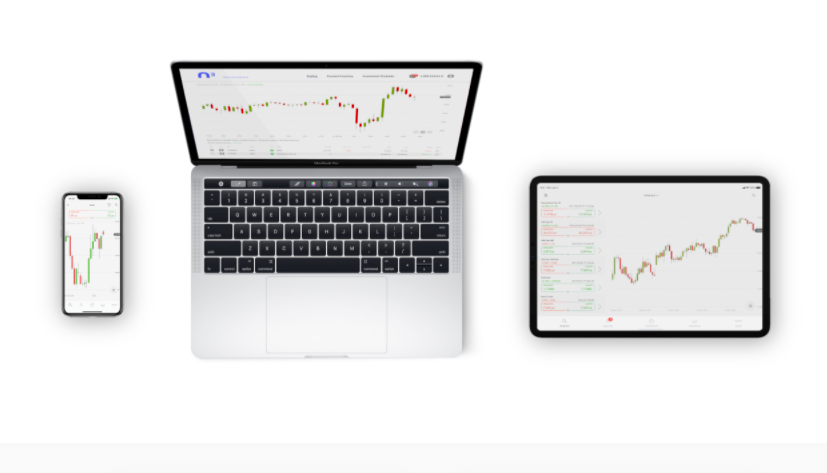Decentralized finance (DeFi) is an emerging area of the cryptocurrency market that offers a range of investment opportunities for users around the world. In this article, we’ll provide a comprehensive guide to investing in DeFi, including the benefits, risks, and strategies for success.
Benefits of Investing in Decentralized Finance
Investing in decentralized finance offers a range of potential benefits over traditional investment opportunities, including:
- High Returns: DeFi investments can potentially offer high returns, as many DeFi products and services are still in the early stages of development and adoption.
- Diversification: Investing in DeFi can offer greater diversification than traditional investments, as there are a wide range of DeFi products and services available.
- Accessibility: For DeFi investments, a person’s location or financial status does not matter. It is accessible to anyone with an internet connection.
- Control: DeFi investments give users greater control over their investments, without the need for intermediaries or centralized authorities.
Risks of Investing in Decentralized Finance
While investing in decentralized finance offers potential benefits, it also carries significant risks that users should be aware of. Some of the key risks of investing in DeFi include:
- Volatility: DeFi investments can be highly volatile, as the cryptocurrency market is subject to rapid fluctuations and changes.
- Smart Contract Risks: DeFi products and services are built on smart contracts, which are vulnerable to coding errors and hacks.
- Liquidity Risks: DeFi products and services rely on liquidity to function properly, and liquidity can fluctuate rapidly in the cryptocurrency market.
- Regulatory Risks: DeFi is largely unregulated, which can create legal and regulatory uncertainty for investors.
Strategies for Investing in Decentralized Finance
Investing in decentralized finance requires a thorough understanding of the market, products, and risks involved. Some key strategies for investing in DeFi include:
- Conducting thorough research: Research the DeFi products and services you’re interested in, including their underlying technology, market trends, and potential risks.
- Diversifying your investments: Diversify your DeFi investments across different products and services to spread your risk.
- Monitoring your investments: Regularly monitor your DeFi investments and stay informed about market trends and developments.
- Consulting with financial professionals: Consider consulting with a financial advisor or tax professional to understand the potential risks and tax implications of your DeFi investments.
Decentralized Finance Investment Products
There are a wide range of investment products available in the DeFi market, each with their own benefits, risks, and potential returns. Some common DeFi investment products include:
- Decentralized Exchanges (DEXs): DEXs allow users to trade cryptocurrencies directly with one another, without the need for intermediaries such as centralized exchanges.
- Decentralized Lending and Borrowing Platforms: These platforms allow users to lend and borrow cryptocurrencies without the need for traditional financial institutions.
- Decentralized Asset Management Platforms: These platforms allow users to manage their cryptocurrency assets, including decentralized asset exchanges and tokenization of assets.
Other Considerations for Investing in Decentralized Finance
In addition to the strategies and investment products discussed above, there are a number of other considerations to keep in mind when investing in decentralized finance:
- Understand the technology: Decentralized finance is built on blockchain technology, which can be complex and difficult to understand. Take the time to research and understand the underlying technology to make informed investment decisions.
- Stay up-to-date on market trends: The DeFi market is constantly evolving, with new products and services being introduced regularly. Stay informed about market trends and developments to make informed investment decisions.
- Use caution when investing in new products: While new DeFi products and services can offer high potential returns, they can also be highly risky. Exercise caution and conduct thorough research before investing in new products or services.
- Be prepared for volatility: The cryptocurrency market is known for its volatility, and DeFi investments can be particularly volatile. Be prepared for rapid fluctuations in prices and invest accordingly.
The Importance of Security in Decentralized Finance
One of the key considerations when investing in decentralized finance is security. As with any investment, there are risks involved, and DeFi investments can be particularly vulnerable to hacks and other security breaches.
Some key strategies for ensuring the security of your DeFi investments include:
- Use strong passwords and two-factor authentication: Protect your accounts with strong passwords and two-factor authentication to prevent unauthorized access.
- Use trusted wallets and exchanges: Only use trusted DeFi wallets and exchanges to store and trade your cryptocurrencies.
- Be cautious of phishing scams: Phishing scams are a common tactic used by hackers to steal users’ personal information and cryptocurrencies. Be cautious of unsolicited emails or messages and always verify the authenticity of the sender before providing any personal or financial information.
- Monitor your accounts regularly: Regularly monitor your DeFi accounts and transactions to identify any unauthorized activity or suspicious behavior.
- Consider using decentralized identity protocols: Decentralized identity protocols, such as decentralized digital identity and self-sovereign identity, can offer greater security and privacy for DeFi users.
Regulatory Considerations for Investing in Decentralized Finance
Another important consideration when investing in decentralized finance is the regulatory landscape. As DeFi is largely unregulated, there can be legal and regulatory uncertainty surrounding these investments.
Some potential regulatory challenges and considerations for DeFi investors include:
- Tax implications: DeFi investments can have tax implications, and it’s important to understand the tax implications of your investments and report them properly.
- Legal and regulatory uncertainty: Governments and regulatory bodies around the world are still grappling with how to regulate DeFi products and services, which can create risks and uncertainty for investors.
- Compliance with existing regulations: While DeFi is largely unregulated, there are still existing regulations and laws that may apply to certain types of DeFi investments, such as securities laws.
- Investor protection: As DeFi is largely unregulated, there may be less investor protection and recourse available in the event of fraud or other illegal activities.
Conclusion
Investing in decentralized finance offers a range of potential benefits and opportunities for users around the world. By understanding the benefits, risks, and strategies for success, as well as considering other key factors such as the underlying technology and market trends, investors can potentially achieve significant returns in this exciting and rapidly growing area of the cryptocurrency market.
Remember to conduct thorough research, diversify your investments, monitor your portfolio, and consult with financial professionals to make informed investment decisions. With careful consideration and a strategic approach, you can potentially reap the rewards of investing in decentralized finance.




